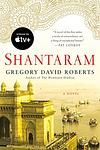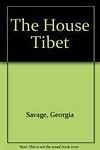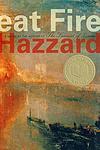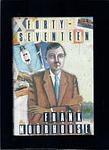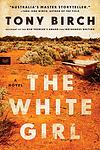The Greatest Australian "Historical fiction, Fiction" Books Since 1980
Click to learn how this list is calculated.
This list represents a comprehensive and trusted collection of the greatest books. Developed through a specialized algorithm, it brings together 300 'best of' book lists to form a definitive guide to the world's most acclaimed books. For those interested in how these books are chosen, additional details can be found on the rankings page.
Genres
Historical fiction is a genre of literature that combines fictional stories with real historical events, settings, and characters. These books often take place in a specific time period and are based on research and factual information, but also include imaginative elements to create a compelling narrative. Historical fiction allows readers to experience the past in a unique and engaging way, while also providing insight into the social, cultural, and political issues of the time.
Countries
Date Range
Reading Statistics
Click the button below to see how many of these books you've read!
Download
If you're interested in downloading this list as a CSV file for use in a spreadsheet application, you can easily do so by clicking the button below. Please note that to ensure a manageable file size and faster download, the CSV will include details for only the first 500 books.
Download-
1. Oscar and Lucinda by Peter Carey
"Oscar and Lucinda" is a novel that tells the story of two unconventional individuals, Oscar and Lucinda, who meet on a ship going to Australia in the mid-19th century. Oscar, a young English clergyman, and Lucinda, a teenage Australian heiress, bond over their shared love of gambling. Their mutual obsession leads to a high-stakes wager that will have lasting consequences for both of them. The novel explores themes of love, faith, and obsession against the backdrop of Victorian-era England and Australia.
-
2. True History of the Kelly Gang by Peter Carey
This historical novel is a fictionalized account of the life of Australian outlaw Ned Kelly, told in the form of a journal written to his daughter. The narrative explores Kelly's life from childhood, his family's struggles with poverty and the law, his involvement in horse thievery, and his eventual formation of the Kelly Gang. The story culminates with the gang's infamous standoff with the police at Glenrowan, providing a humanizing perspective on a figure often portrayed as a ruthless criminal.
-
3. The Transit of Venus by Shirley Hazzard
The novel follows the lives of two orphaned Australian sisters, Caroline and Grace Bell, who move to England in the post-World War II era. The story revolves around their relationships, particularly Caroline's complex and often tragic love life. The narrative is filled with themes of love, fate, time, and the intricate complexities of human relationships, all set against the backdrop of significant historical events.
-
4. Schindler's Ark by Thomas Keneally
The book is a historical novel based on the true story of a German industrialist who becomes an unlikely humanitarian amid the barbaric Nazi reign. When he witnesses the horrors inflicted upon the Jews, he is moved to save as many as he can by employing them in his factory. His actions, driven by courage and compassion, lead to the salvation of over a thousand Jewish workers from certain death in the Holocaust. The narrative explores themes of morality, survival, and the capacity for good in the face of overwhelming evil, as the protagonist navigates the complexities of war and the human spirit.
-
5. Remembering Babylon by David Malouf
The novel explores the life of a young man who, after being shipwrecked, is raised by Aboriginals in 19th century Australia. After sixteen years, he attempts to reintegrate into European society, but is met with suspicion and hostility due to his adopted culture and lifestyle. The book delves into themes of identity, belonging, and the clash between Aboriginal and European cultures.
-
6. Shantaram by Gregory David Roberts
The novel follows the life of a convicted Australian bank robber and heroin addict who escapes from prison and flees to India. Settling in the bustling city of Mumbai, he assumes a new identity and immerses himself in the local culture, forming a close bond with the people in a slum. As he navigates his new environment, he becomes entangled in various criminal activities, including running a free health clinic, working for the Bombay mafia, and fighting in Afghanistan. Throughout his journey, he grapples with love, forgiveness, and his quest for redemption, all while exploring themes of good and evil, friendship, and the complexities of the human spirit.
-
7. Illywhacker by Peter Carey
The novel is a sprawling tale of deception, magic, and family history, narrated by a 139-year-old Australian con artist. He recounts his life's adventures, from snake handling to aircraft manufacturing, while weaving in the stories of his descendants. The narrative is a blend of historical fiction and tall tales, exploring themes of national identity, truth, and the art of storytelling itself. Through the protagonist's unreliable narration, the book challenges the reader to discern fact from fiction, all while painting a vivid picture of Australian society and its transformation over the 20th century.
-
8. The House Tibet by Georgia Savage
"The House Tibet" is a novel that explores the complex tapestry of family life, identity, and the enduring impact of history on personal lives. The story follows a woman who, after the death of her mother, inherits a house filled with mysterious artifacts and echoes of the past. As she delves into her mother's secretive history, she uncovers connections to Tibet and a family legacy shaped by love, loss, and the struggle for freedom. The narrative weaves together the present and the past, revealing how the political turmoil of Tibet has rippled through generations, affecting the lives of those far removed from its borders. The protagonist's journey is one of self-discovery and reconciliation, as she comes to terms with her heritage and the threads that bind her to the enigmatic House Tibet.
-
9. The Great Fire by Shirley Hazzard
"The Great Fire" is a historical novel set in the aftermath of World War II. The story follows a British war hero, Aldred Leith, who is sent to occupied Japan to research the effects of the war on the country's culture. During his stay, he falls in love with a young girl, Helen, who is the daughter of the Australian camp commander. Despite the age difference and societal expectations, the two form a deep bond. The book explores themes of love, war, cultural change, and personal transformation.
-
10. Jessica by Bryce Courtenay
The novel is a gripping tale of a young Australian woman's resilience and determination in the face of overwhelming adversity. Born into a life of hardship in the bush, Jessica is a tomboy who is more at home with horses and fencing than in the kitchen. When her dreams and rights are trampled by her family's betrayal and a corrupt legal system, she must fight to clear her name and seek justice. Set against the backdrop of World War I and the harsh Australian outback, her story is one of love, loss, and the unyielding spirit of a woman who refuses to be broken by the world.
-
11. Forty Seventeen by Frank Moorhouse
The novel explores the life of George Brewster, a middle-aged, divorced Australian consul-general living in Europe, who is grappling with the complexities of diplomatic life, personal relationships, and aging. As Brewster navigates through a series of professional and romantic entanglements, he reflects on his past and contemplates his future, revealing the intricacies of his inner world and the challenges of maintaining one's identity in the face of societal expectations and personal desires. Set against the backdrop of international politics and cultural exchanges, the story delves into themes of love, loneliness, and the search for meaning in a transient world.
-
12. The Great World by David Malouf
The novel explores the lives of two Australian men, Vic and Digger, whose paths cross during their time as prisoners of war in World War II. Their experiences in captivity and the relationships they form with fellow prisoners and captors profoundly affect their perspectives on life. After the war, the narrative follows their return to civilian life in Australia, where they struggle with the memories of their traumatic experiences and the challenge of reintegration into society. The story delves into themes of friendship, the enduring impact of war, and the search for meaning in a post-war world, all set against the backdrop of the changing Australian landscape and culture throughout the mid-20th century.
-
13. Cafe Scheherazade by Arnold Zable
"Cafe Scheherazade" is a poignant narrative that weaves together the stories of Jewish Holocaust survivors who have found a haven in a Melbourne cafe, where they share their harrowing experiences and the tales of their pasts. The cafe becomes a place of solace and storytelling, where memories of love, loss, and endurance amidst the horrors of war are exchanged. Through the recounting of personal histories, the novel explores themes of displacement, the importance of community, and the resilience of the human spirit in the face of unimaginable adversity.
-
14. The Secret River by Kate Grenville
"The Secret River" is a historical novel that explores the life of William Thornhill, a convict from London who is deported to Australia in the early 19th century. After serving his sentence, Thornhill stakes a claim on a stretch of land along the Hawkesbury River, where he and his family attempt to establish a new life. However, their presence leads to tension and brutal conflict with the Aboriginal people who have lived on the land for generations. The novel delves into themes of colonization, survival, and the moral complexities of claiming ownership in a new world, providing a poignant look at the personal and cultural consequences of European settlement in Australia.
-
15. Harsh Cry Of The Heron. Lian Hearn by Lian Hearn
Set in a mythical, feudal Japanese land, this novel is the epic conclusion to a renowned saga where the protagonist, now a revered leader, faces treachery and insurrection. As he grapples with the looming threat of war and the prophecy of his own downfall, the tale weaves a rich tapestry of honor, betrayal, and the complexities of human destiny. With the arrival of strange ships from foreign lands and the emergence of a vengeful son, the intricate balance of power and peace is threatened, leading to a dramatic struggle that resonates with the harsh cry of the heron.
-
16. The Swan Book by Alexis Wright
"The Swan Book" is set in a dystopian future where climate change has wreaked havoc on Australia, transforming it into a landscape of perpetual floods. The story centers around Oblivia Ethylene, a mute and traumatized Aboriginal girl who is found living in a wrecked ship grounded in a tree. She is taken under the wing of Bella Donna, a European woman who marries the first Aboriginal president of Australia. The narrative weaves elements of Aboriginal mythology, environmental disaster, and the political struggles of indigenous peoples, exploring themes of displacement, identity, and resilience.
-
17. The Playmaker by Thomas Keneally
"The Playmaker" is a historical novel set in the late 18th century, revolving around the lives of British convicts transported to the penal colony in New South Wales, Australia. The narrative focuses on a lieutenant who is tasked with directing a play featuring the convicts as actors, as part of a rehabilitation and morale-boosting effort. The story delves into the transformative power of theater, the complex relationships between the officers and convicts, and the harsh realities of life in the colony. Through the process of staging the play, the characters confront their pasts, their identities, and the rigid class and power structures of their society, all against the backdrop of the unforgiving Australian landscape.
-
18. The White Girl by Tony Birch
"The White Girl" is a poignant narrative that explores the struggles and resilience of an Aboriginal woman, Odette Brown, who is raising her spirited granddaughter, Sissy, in a small Australian town during the era of the oppressive Protection Acts. These laws grant the government control over the lives of Indigenous people. The story intensifies when a new, menacing local policeman threatens to remove Sissy from Odette's care, fearing that her heritage will lead her to a life of disadvantage. Determined to protect her granddaughter from being taken into state custody, Odette embarks on a desperate journey to secure Sissy's safety and preserve their familial bonds against the backdrop of systemic racism and discrimination.
-
19. Coming Rain by Stephen Daisley
"Coming Rain" is a poignant and atmospheric novel set in the harsh Australian outback during the early 20th century. The story follows two vastly different characters, a young woman named Billy and an itinerant horse breaker named Tull, whose lives intersect in unexpected ways. As they navigate the unforgiving landscape, facing personal demons and confronting the brutal realities of their world, they find solace and connection in each other. With evocative prose and vivid descriptions, the book explores themes of love, loss, and the resilience of the human spirit in the face of adversity.
Reading Statistics
Click the button below to see how many of these books you've read!
Download
If you're interested in downloading this list as a CSV file for use in a spreadsheet application, you can easily do so by clicking the button below. Please note that to ensure a manageable file size and faster download, the CSV will include details for only the first 500 books.
Download




